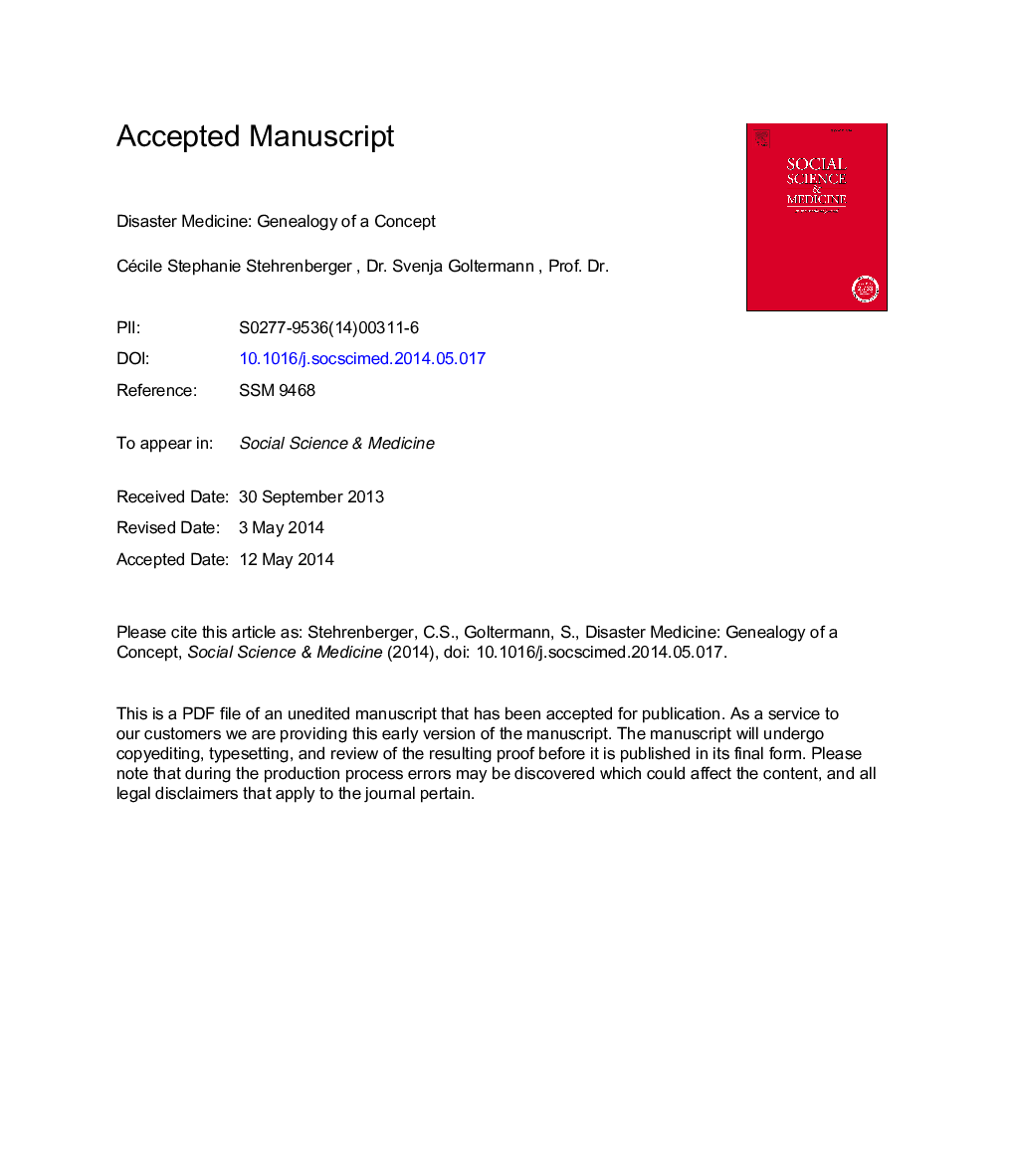| Article ID | Journal | Published Year | Pages | File Type |
|---|---|---|---|---|
| 7334174 | Social Science & Medicine | 2014 | 30 Pages |
Abstract
This paper evaluates disaster medicine from a historical perspective that facilitates the understanding of its present. Today, disaster medicine and humanitarian medicine are inextricably linked and the terms are sometimes used synonymously. An in-depth analysis of an extensive body of concrete empirical cases from various sources (i.e. archival records) reveals, however, that they have not always been the same. A genealogical, history-of-knowledge approach demonstrates that the concept of disaster medicine emerged in the early 20th century in Switzerland in the context of industrialization. Even though it gained important impetus during the First World War, the concept was informed by the experiences of forensic physicians in technological disasters such as mining explosions. The Cold War constituted the historical constellation in which disaster medicine was developed in West Germany during the 1960s and 1970s in a way that was paradigmatic for other Western European countries. At the same time, it was contested there in an unusual, historically unique way. Although focusing on a Western European context, this paper explores how medical interventions in disasters were international events and how the practice of disaster medicine was developed and “trained” through being applied in the Global South. It demonstrates the historicity of disaster medicine's political character and of the controversies generated by its involvement in civil and military operations. Throughout the 20th century, the political nature and military involvement of disaster medicine resulted in a number of ethical and practical issues, which are similar to the challenges facing humanitarian medicine today. The exploration of disaster medicine's past can therefore open up critical interventions in humanitarian medicine's present.
Keywords
Related Topics
Health Sciences
Medicine and Dentistry
Public Health and Health Policy
Authors
Cécile Stephanie Stehrenberger, Svenja Goltermann,
